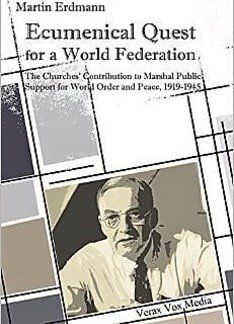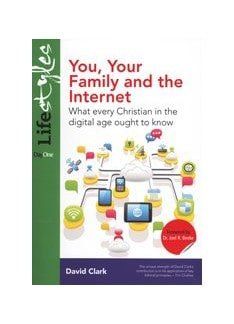Balance. Is there anything more elusive? Most of us strive constantly for balance – whether with our time, money, diet or relationships. If few of us feel we have found the right balance, the same can be said for the historical church.
God’s people tend to swing from one extreme to another, causing considerable tension within the body of Christ. One such tension is that between the academic and the experiential – between those who emphasise the theological and those who major on the subjective.
Subjective oriented believers decry ‘dead orthodoxy’. I vividly remember an extremist group marching around Moody Bible Institute when I was a student there, crying, ‘Babylon is falling down’. Doctrinally inclined Christians, on the other hand, dismiss such people as ‘heterodox’.
The proper biblical balance, surely, is for theology to result in doxology, and doxology to lead to holy, passionate living for Jesus Christ. Unfortunately it seldom seems to be that easy – balance between theology and experience is hard to find.
Our modern struggle has much historical precedent. One such precedent, which still has major ramifications today, is ‘Pietism’.
A little history
Pietism began as a reaction to the highly intellectualised orthodoxy common in Lutheran and Reformed churches in the decades following the Reformation. Pietism made its appearance as a distinct historical movement within Protestantism, at the end of the seventeenth and beginning of the eighteenth centuries, around 1690-1730.
Its aim was to stress ‘practical piety’ as distinct from the polemical dogmatic theology to which the Reformation had given a certain priority.
Against the intellectualist and abstract understanding of God and of dogmatic truth, pietism set a practical, active piety (Praxis pietatis) – good works; daily self-examination; daily Bible study (with practical application of its moral teaching); emotionalism in prayer; a clear break with worldly practices (dancing, the theatre, non-religious reading); and tendencies towards separatism (the movement held private meetings and distinguished itself from the ‘official church’).
Among many leaders among the Pietists, the following four stand out.
Johann Arndt(1555-1621)
Although he predates the movement itself, modern Historians consider Arndt to be the Father of Pietism. His most lasting influence came through his six-volume devotional work True Christianity (1606). This was a collection of sermons which relied heavily on the mystics, especially Thomas à Kempis.
Arndt was not a classical mystic but he was concerned with how one could find the kingdom of God within oneself. His answer was found in self-denial as opposed to intellectual pursuit.
Reacting to what he considered the dead orthodoxy of Lutheranism, Arndt preached that the evidence of conversion was not correct doctrine but a changed life.
Philip Jacob Spener(1635-1705)
Spener wrote his major work Pia desideria (Pious desires) subtitled, ‘Heartfelt desire for God-pleasing reform’, in 1675. Many Lutherans date the beginning of Pietism from the publication of this book, which became a manual for Pietistic reform.
Spener took Arndt one step further, aggressively combatting those who promoted doctrine to the -neglect of piety. Spener did not minimise Scripture but there was a subtle, almost indiscernible shift towards experience.
Auguste Hermann Francke(1663-1727)
As Spener’s successor, Francke expanded Spener’s emphasis on a changed life and practical theology. He was known for his kindness and great interest in foreign missions, as well as his ecumenical spirit.
Count Nicolaus Ludwig Von Zinzendorf(1700-1760)
In Zinzendorf the teachings of Arndt, Spener and Francke bore their natural fruit. Zinzendorf developed a system he called ‘Theology of the heart’, which meant basically that heartfelt religious convictions and experiences were more trustworthy than theological understanding.
As a natural outworking of this philosophy, Zinzendorf emphasised the ecumenicalism of Francke, teaching that doctrinal difference between believers should be tolerated. Zinzendorf is best known today because of his leadership of the Moravians, a Pietist sect that had a profound impact on John Wesley.
What did Pietism teach?
While Pietism had its original roots in Lutheranism, historians identify at least three other branches of early Pietism including Reformed, Moravian and Radical Pietism. It is therefore difficult to pin down the exact beliefs of the Pietists, but some definite common threads that can be traced throughout all these branches.
Spener offered six proposals for reform in Pia Desideria,which became a short summary of Pietism. These were as follows:
Firstly, there should be ‘a more extensive use of the Word of God among us’. The Bible, Spener said, ‘must be the chief means for reforming something’.
Secondly, he called also for a renewal of ‘the spiritual priesthood’ – the priesthood of all believers. He cited Luther’s example in urging all Christians to be active in the general work of Christian ministry.
Thirdly, he appealed for genuine Christian practice, arguing that Christianity is more than just knowledge.
Fourthly, Spener urged restraint and charity in religious controversies. He asked his readers to love and pray for unbelievers and the erring, and to adopt a moderate tone in disputes.
Fifthly, he called for a reform in the education of ministers. Here he stressed the need for training in piety and devotion as well as in academic subjects.
Lastly, he implored ministers to preach edifying sermons, understandable by the people, rather than technical discourses which few could relate to or understand.
Zinzendorf
Spener’s proposals can hardly be faulted. But while he had a concern for proper exegesis and a high regard for the Bible, he and other Pietists gradually began to allow experience and subjectivism to command more authority than Scripture.
By the time we get to Zinzendorf this drift had become obvious. Experience, despite what might be officially stated, had in practice become the final arbiter in the lives of the Moravians.
Zinzendorf stressed ‘the importance of experiencing God’ to the extent of allowing personal experience to determine the meaning of Scripture and frame Christian living. Based upon the studies of J. E. Hutton, historian of the Moravian movement, Arnold Dallimore writes:
‘To them the value of the Bible consisted not in its supposed infallibility but in its appeal to their hearts … The Bible was not its supreme authority, but authority lay also in personal experience and, of course, varied according to the sentiments of the individual.
‘Nor was the Bible a book to which they gave diligent study; they regarded it somewhat as a compilation of texts and mottoes, and they had the curious practice of opening it at random and accepting the first verse their eye lighted upon as the immediate guidance of heaven.
‘The Moravians give little attention to systematic theology … The Society’s gatherings were characterised by an extraordinary fervour but, because of the lack of clear doctrinal teaching, its members proved susceptible to varying religious influences’ (George Whitefield, Banner of Truth, pp.172-174).
Plus and minus
On the positive side, Pietism rejected cold orthodoxy and called believers back to the Scriptures – not just for intellectual knowledge but also for heartfelt change and authentic personal experience.
On the negative side, Pietism led to subjectivism which ultimately drew Christians away from truth as found in God’s Word. Many church historians, including Mark Noll, believe that Pietism paved the way for the theological liberalism of the nineteenth and twentieth centuries.
Others, but not all, see a link between unchecked Pietism and the Enlightenment. These are odd outcomes for a movement that attempted to bring the church back to the Scriptures and the proper application of truth.
But they are not altogether surprising, given the dominant role that subjectivity ultimately played in the Pietistic movement. Once our lives and churches become untethered from the Scriptures there is no limit to where they might land.













